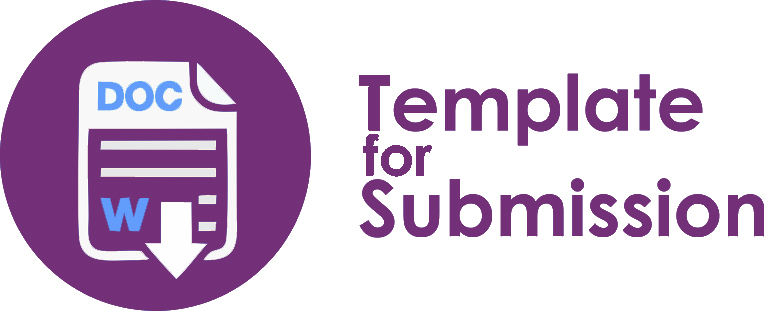Implementation of the PjBL Model to Improve Science Learning Outcomes in Class V at SDN 06 Blangko
DOI:
https://doi.org/10.46229/elia.v5i1.997Keywords:
Learning Outcomes, Learning Effectiveness, PjBL ModelAbstract
Penelitian ini dilakukan dengan tujuan untuk mengetahui perubahan hasil belajar pada siswa kelas V di SDN Blangko setelah peneliti menerapkan metode pembelajaran Project Based Learning(PJBL). Dalam pelaksanaanya peneliti menggunakan penelitian tindakan kelas(PTK) yang dilaksanakan dalam dua siklus. Siklus I merupakan kegiatan dengan tindakan metode PJBL tahap pertama dalam mengukur hasil belajar siswa. Pada siklus I nilai rata-rata siswa yang tuntas sebesar 56,5 dengan presentase ketuntasan sebesar 29,6% dan meningkat pada siklus II menjadi 82,2 dengan presentase ketuntasan sebesar 88,9%, dari siklus 1 ke siklus II terjadi peningkatan sebesar 59,3%. Hal ini ditunjukkan dengan rata-rata aktivitas siswa pada siklus I sebesar 3,0 dan pada siklus II meningkat menjadi 3,8. Secara umum hasil penelitian ini menunjukkan bahwa penggunaan metode PJBL cukup efektif dalam meningkatkan hasil belajar dan aktivitas pembelajaran siswa. Indikator capaian pembelajaran dalam penelitian ini adalah hasil belajar siswa mengalami peningkatan sehingga hasil penelitian ini dapat dijadikan acuan dengan menggunakan metode PJBL dalam meningkatkan hasil belajar siswa.
References
Damayanti, et all. (2023). Strategi Pembelajaran Project Based Learning (Pjbl). Jurnal Pendidikan Sosial Dan Humaniora, 2(2), 706–719. https://publisherqu.com/index.php/pediaqu
Fahrezi, I., Taufiq, M., Akhwani, A., & Nafia’ah, N. (2020). Meta-Analisis Pengaruh Model Pembelajaran Project Based Learning Terhadap Hasil Belajar Siswa Pada Mata Pelajaran IPA Sekolah Dasar. Jurnal Ilmiah Pendidikan Profesi Guru, 3(3), 408. https://doi.org/10.23887/jippg.v3i3.28081
Indah, M., Hendracipta, N., & Hakim, Z. R. (2023). Implementasi Model Project Based Learning Sebagai Sarana Penguasaan Keterampilan Abad 21 Peserta Didik di SD Negeri Rawu. Jurnal Pendidikan Dasar Flobamorata, 4(2), 520–526. https://doi.org/10.51494/jpdf.v4i2.1004
Muis, A., & Dewi, L. (2021). Day care management course design based on OBE and PjBL for teacher education of early childhood education program. Inovasi Kurikulum, 18(2), 128–140.
Munirah. (2015). Sistem Pendidikan di Indonesia antara Keinginan dan Realita. Fakultas Tarbiyah Dan Keguruan UIN Alauddin Makassar, 2(2), 233–245.
Redhana, I. W. (2019). Mengembangkan Keterampilan Abad Ke-21 Dalam Pembelajaran Kimia. Jurnal Inovasi Pendidikan Kimia, 13(1).
Renatovna, A. G., & Renatovna, A. S. (2021). Pedagogical and psychological conditions of preparing students for social relations on the basis of the development of critical thinking. Psychology and Education Journal, 58(2), 4889–4902.
Rineksiane, N. P. (2022). Penerapan Metode Pembelajaran Project Based Learning untuk Membantu Siswa dalam Berpikir Kritis. 7(1), 82–91.
Sulistiyani, B. D. (2021). Penerapan Model Pembelajaran Project Based Learning untuk Meningkatkan Hasil Belajar IPA pada Siswa Kelas V. Social, Humanities, and Educational Studies (SHEs): Conference Series, 3(4), 422. https://doi.org/10.20961/shes.v3i4.53379
Yanuarto, W. N., Fahmi, Astuti, Wijayanti, & Tarjo, D. C. S. H. M. S. S. J. M. L. R. L. H. K. R. M. M. (2021). Penelitian Tindakan Kelas Panduan Lengkap Dan Praktis. In Diterbitkan oleh Penerbit Adab CV. Adanu Abimata (Issue Mi).
Downloads
Published
How to Cite
Issue
Section
License
Copyright (c) 2025 Febriana Feby, Siprianus Jewarut

This work is licensed under a Creative Commons Attribution 4.0 International License.
Journal of Educational Learning and Innovation (ELIa)
Authors who publish with Journal of Educational Learning and Innovation (ELIa) agree to the following terms:
- Authors retain copyright and grant the journal right of first publication with the work simultaneously licensed under a Creative Commons Attribution License that allows others to share the work with an acknowledgement of the work's authorship and initial publication in this journal.
- Authors are able to enter into separate, additional contractual arrangements for the non-exclusive distribution of the journal's published version of the work (e.g., post it to an institutional repository or publish it in a book), with an acknowledgement of its initial publication in this journal.
- Authors are permitted and encouraged to post their work online (e.g., in institutional repositories or on their website) prior to and during the submission process, as it can lead to productive exchanges, as well as earlier and greater citation of published work (See The Effect of Open Access).










